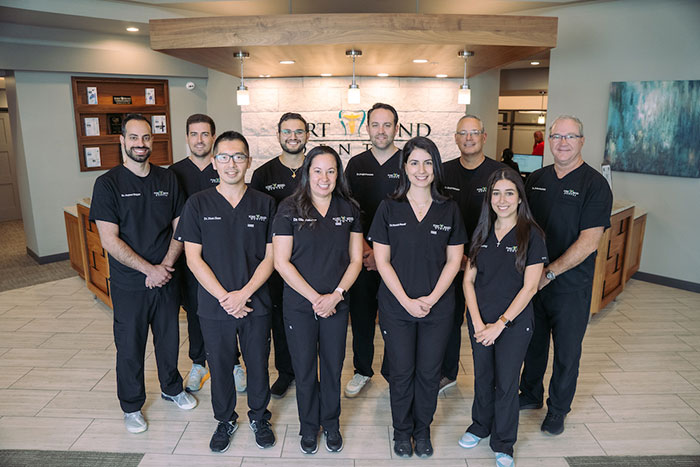
Ideally, your child’s first dental visit should occur while they are still a baby. It’s recommended that babies be taken to the dentist by age 1 or within six months of the emergence of their first tooth. Of course, many times parents don’t take their child to the dentist until later in life. Dental health organizations estimate that most children aren't taken to the dentist until after they’re 2 years old.
While it’s technically never too late for a child’s first dental visit, the sooner they see the dentist, the better it is in the long run. Our Missouri City, TX dental practice covers some of the basics about your baby’s first pediatric dentistry visit.
Picking the Right Dentist in Your Area
It’s important to find a dentist in your area who is familiar with the dental health needs of children, especially very young children. Be sure to do your research online, and to ask friends about the dentist they bring their children to.
Going Over Your Infant’s Medical History
When you finally settle on the right dentist for you child, the initial visit will be rather straightforward. You will meet with the dentist and go over some of the basics about your child and their baby teeth. If there are any early issues in your child’s medical history, mention these with your dentist. They could impact your baby’s dental health in some ways.
Performing a Simple Exam
After some basic discussion of your child’s medical history, a simple exam will be performed to note the incoming baby teeth. This will all be included in your child’s dental records. Starting the dental records as soon as possible allows for a more complete picture of your child’s growth and development.
Discussion of Teething
Teething is a major issue for infants, so expect some discussion about this with your dentist. You will be given some tips to consider to help make your child’s discomfort more bearable.
Going Over Basic Oral Hygiene
Brushing your baby’s teeth is crucial for long-term dental health. Your dentist can offer advice on what toothpaste to use, what kind of toothbrush to consider, and how to keep your baby’s smile as clean and healthy as possible.
Talk About Bottle Decay
Bottle decay is a common issue when babies feed overnight. That’s why dentists will recommend replacing milk or formula in a bottle with water when your child is sleeping. This helps avoid issues with cavities while ensuring your child can still have something to drink as they’re going to sleep.
Dealing with Pacifiers and Thumb Sucking
Excessive thumb sucking and use of pacifiers can warp the upper palate, leading to tooth misalignment issues. Your dentist can go over options for keeping your child from thumb sucking or using that pacifier tooth much.
Scheduling the Next Visit
At the end of the first visit, your dentist can get you set up for the next one in six months. It’s never too early to make sure your child trusts the dentist and gets used to regular visits.
Contact the Team at Fort Bend Dental
For more information about family dental care matters and improving your child’s dental health, be sure to contact Fort Bend Dental. We look forward to your visit and discussing all of these matters in much greater detail.
Posted on behalf of

